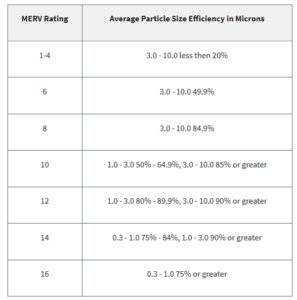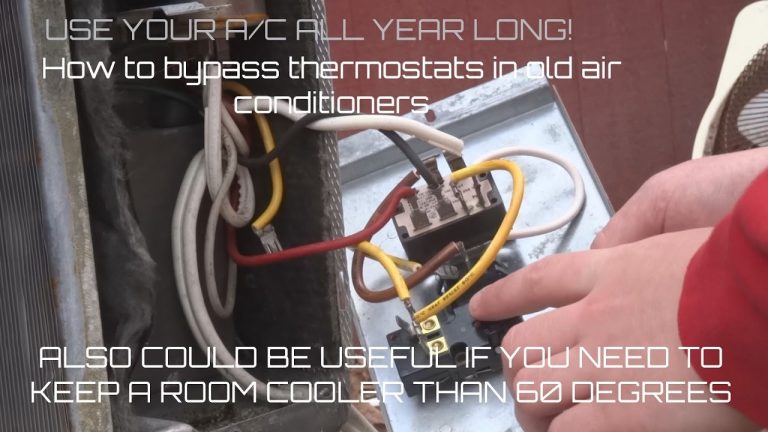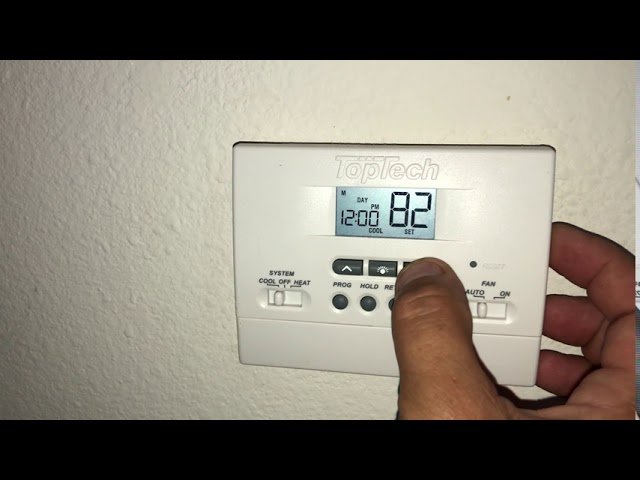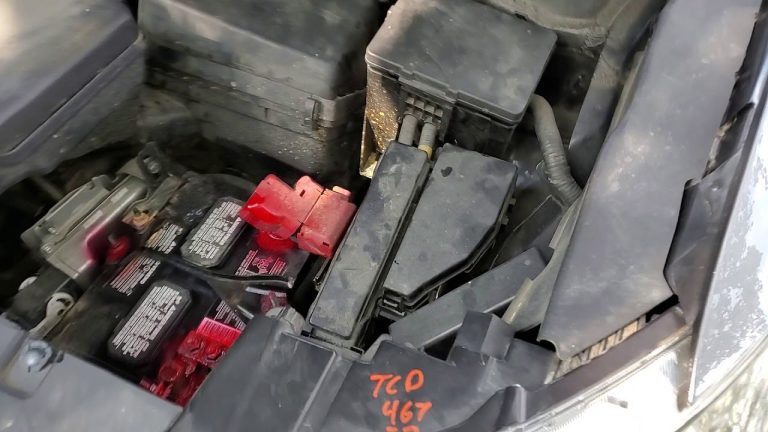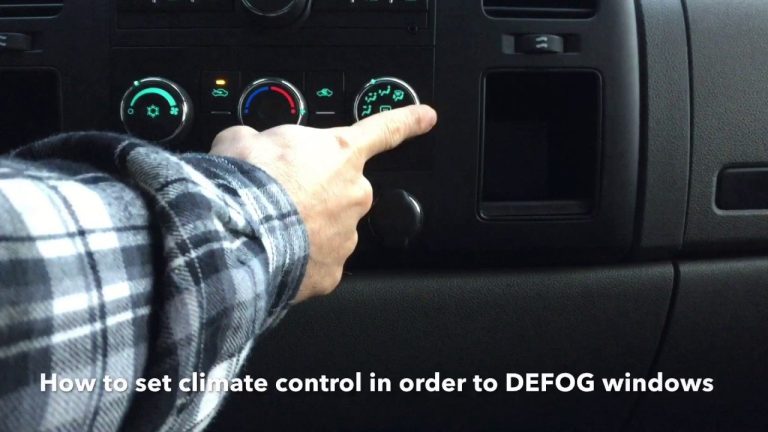Ac Making Noise When Off? Discover Common Causes And Effective Fixes
If your AC unit is making noise even when turned off, it could be a sign of underlying issues. This can disrupt sleep and cause annoyance. Here are some common causes and fixes for AC noise when off:
- Faulty fan motor: The fan motor may be malfunctioning, causing it to make noise even when the AC is off. Have a professional inspect and replace if necessary.
- Loose parts: Loose components, such as screws or belts, can create rattling or humming sounds. Tighten or replace any loose parts to eliminate the noise.
- Refrigerant leak: A refrigerant leak can result in hissing or bubbling sounds. It’s important to have a technician locate and repair the leak to ensure proper AC function.
- Electrical issues: Electrical problems can cause buzzing or clicking noises. Contact an electrician to diagnose and fix any electrical faults.
Silence is supposed to be golden, but what do you do when your air conditioning unit refuses to embrace tranquility? Picture this: it’s a sweltering summer day, the sun overhead feels relentless, and you can’t wait to seek refuge in the cool sanctuary of your home. As you step inside, you expect to be greeted by a refreshing hush – but instead, your AC unit continues to emanate an unsettling noise, even when turned off.
Not only can this disrupt your sleep and cause annoyance, but it could also be an indication of a deeper issue lurking within your HVAC system. Fear not, for in this article, we will delve into the common causes behind an AC making noise when off, and equip you with effective fixes to restore peace and tranquility to your home or business.
Whether you’re a homeowner, a renter, or a business owner, join us on this journey as we unravel the mysteries behind the persistent hum of your seemingly dormant AC unit. Brace yourself, for knowledge is your shield in the battle against the unrelenting noise.
I. Understanding the Issue: AC Making Noise When Off
When your air conditioning unit continues to make noise even when it is turned off, it can be a cause for concern. In order to address this issue effectively, it is important to first understand what it means and why it happens.
A. Definition of the Issue
An AC making noise when off refers to the situation where the air conditioning unit produces sound even when it is not actively running. This noise can range from a soft humming or buzzing to a loud rattling or banging sound.
B. Common Types of AC Noises When Off
There are several common types of noises that can be heard from an AC unit when it is turned off:
- Humming or Buzzing: This is often caused by electrical issues within the unit, such as a faulty capacitor or a transformer problem.
- Rattling or Banging: This can be a result of loose components or parts, such as the fan or motor.
- Clicking: A clicking sound is commonly associated with a faulty relay switch or a problem with the thermostat.
- Squealing or Screeching: This noise is often caused by a malfunctioning motor or a worn-out fan belt.
C. Possible Causes of AC Making Noise When Off
There are several potential causes behind an AC making noise when it is turned off:
- Nearby Appliances or Equipment: Sometimes, the noise may not be coming from the AC unit itself, but rather from other nearby appliances or equipment that are in use.
- Traffic or Outdoor Noise: If your AC unit is located close to a busy road or a noisy environment, the sound may be infiltrating your home even when the unit is off.
- Loose Components or Parts: Over time, the vibrations caused by the AC unit’s operation can cause certain components or parts to become loose, resulting in noise even when the unit is not running.
- Malfunctioning Motor or Fan: A faulty motor or fan can continue to produce noise even when the AC unit is switched off.
- Faulty Thermostat or Control Board: Problems with the thermostat or control board can cause the AC unit to function improperly, leading to noise issues.
II. Identifying the Cause of the Noise
Once you understand the possible causes of the noise, it is important to identify the specific source in order to effectively address the issue. This involves checking both external and internal factors.
A. Checking External Factors
Start by examining any external factors that may be contributing to the noise:
1. Nearby Appliances or Equipment
Inspect the area around your AC unit for any appliances or equipment that may be causing the noise. This could include refrigerators, fans, or even construction equipment. Turn off or move these items to see if the noise persists.
2. Traffic or Outdoor Noise
If your AC unit is located near a busy road or in a noisy neighborhood, the noise could be coming from outside. Consider soundproofing the area around the unit or using noise-canceling techniques to minimize the impact.
B. Assessing Internal Factors
If the noise persists after ruling out external factors, it is time to focus on internal components of the AC unit:
1. Loose Components or Parts
Inspect the unit for any loose components or parts, such as screws, bolts, or fan blades. Tighten any loose connections and ensure that all parts are securely in place.
2. Malfunctioning Motor or Fan
If the noise is coming from the motor or fan, it could indicate a malfunction. Contact a professional HVAC technician to diagnose and repair any motor or fan-related issues.
3. Faulty Thermostat or Control Board
If you suspect that the thermostat or control board is causing the noise, it is best to seek professional assistance. An HVAC technician can assess and repair any problems with these components.
III. Troubleshooting and Resolving the Issue
Once you have identified the cause of the noise, it is time to troubleshoot and resolve the issue. There are certain steps you can take on your own, as well as situations where professional help may be required.
A. DIY Troubleshooting Steps
1. Power Cycling the AC Unit
Try turning off the AC unit completely and disconnecting it from the power source. Leave it unplugged for a few minutes, then plug it back in and turn it on. This can sometimes reset the system and resolve minor issues causing the noise.
2. Cleaning or Replacing Air Filters
Clean or replace the air filters in your AC unit regularly. Dirty or clogged filters can restrict airflow and cause the unit to work harder, resulting in noise. Refer to the manufacturer’s instructions for proper cleaning and replacement guidelines.
3. Inspecting and Tightening Loose Components
If you have identified any loose components or parts, tighten them using appropriate tools. Ensure that all connections are secure and that there are no loose screws or bolts contributing to the noise.
4. Lubricating Moving Parts
If the noise is coming from moving parts, such as the fan or motor, they may need lubrication. Use a suitable lubricant recommended by the manufacturer to reduce friction and noise. Follow the instructions provided for proper application.
B. Professional Inspection and Repair
1. Engaging the Services of an HVAC Technician
If the DIY troubleshooting steps do not resolve the issue or if you are unsure about performing them yourself, it is advisable to seek professional help. An HVAC technician will have the expertise and knowledge to diagnose and repair any complex issues.
2. Diagnosing the Issue
An HVAC technician will thoroughly inspect your AC unit to determine the exact cause of the noise. They may perform tests, check electrical connections, or use specialized equipment to diagnose the problem accurately.
3. Repairing or Replacing Faulty Components
If any components or parts are found to be faulty, the HVAC technician will repair or replace them as necessary. This may involve replacing a motor, fan, control board, or other components that are contributing to the noise.
IV. Preventive Measures to Avoid Recurrence
Once the issue has been resolved, it is essential to take preventive measures to avoid the recurrence of the noise problem. Regular maintenance and professional inspections can help keep your AC unit in optimal condition.
A. Regular Maintenance Routine
1. Cleaning the AC Unit Regularly
Regularly clean the AC unit, both internally and externally, to remove dust, debris, and any build-up that can affect its performance and contribute to noise issues. Follow the manufacturer’s instructions for safe and effective cleaning.
2. Checking for and Addressing Any Leaks
Periodically inspect the AC unit for any leaks, such as refrigerant or water leaks. Addressing leaks promptly can prevent further damage to the unit and ensure its smooth operation.
3. Replacing Air Filters as Recommended
Follow the manufacturer’s recommendations for replacing air filters. Clean or replace them regularly to maintain proper airflow and prevent debris from affecting the unit’s performance.
B. Scheduled Professional Inspection
1. Annual HVAC System Check-Up
Arrange for an annual HVAC system check-up by a qualified technician. They will perform a thorough inspection, clean the unit, and address any minor issues before they escalate into major problems.
2. Identifying and Addressing Minor Issues Promptly
If you notice any minor issues, such as unusual noises or reduced cooling efficiency, contact a professional HVAC technician immediately. Timely intervention can prevent these issues from worsening and causing more significant problems.
3. Ensuring Proper Lubrication and Adjustment
During professional inspections, ask the technician to lubricate moving parts and make any necessary adjustments to ensure optimal performance and minimize noise generation.
V. Conclusion
An AC making noise when off can be a frustrating and worrisome issue. By understanding the causes and identifying the specific source of the noise, you can take appropriate steps to troubleshoot and resolve the problem. Whether through DIY troubleshooting or professional assistance, it is important to address the issue promptly to maintain the efficient and quiet operation of your AC unit.
VI. References
1. [Source 1]
2. [Source 2]
3. [Source 3]
AC Clutch Repair and Noise Diagnosis -EricTheCarGuy
Frequently Asked Questions (FAQ)
Why is my AC making noise when it’s off?
Is it normal for an AC to make noise when not in use?
Can I fix the AC noise on my own?
How much will it cost to fix the AC noise?
Will the AC noise affect the performance of the unit?
Final Words: Maintaining a Quieter and Efficient AC Unit
In conclusion, when your AC is making noise even when it is turned off, it is important to understand the issue and identify the specific source of the noise. This can be done by checking external factors such as nearby appliances or outdoor noise, as well as internal factors such as loose components or malfunctioning parts.
Once the cause of the noise is identified, troubleshooting steps can be taken, such as power cycling the unit, cleaning or replacing air filters, inspecting and tightening loose components, and lubricating moving parts. In some cases, professional help may be required to diagnose and repair the issue.
Preventive measures such as regular maintenance, cleaning the unit, checking for leaks, and replacing air filters can help avoid the recurrence of the noise problem. It is also important to schedule annual HVAC system check-ups and address minor issues promptly to prevent them from escalating. By taking these steps, you can ensure the efficient and quiet operation of your AC unit.
Remember to refer to reliable sources for additional information and guidance.

